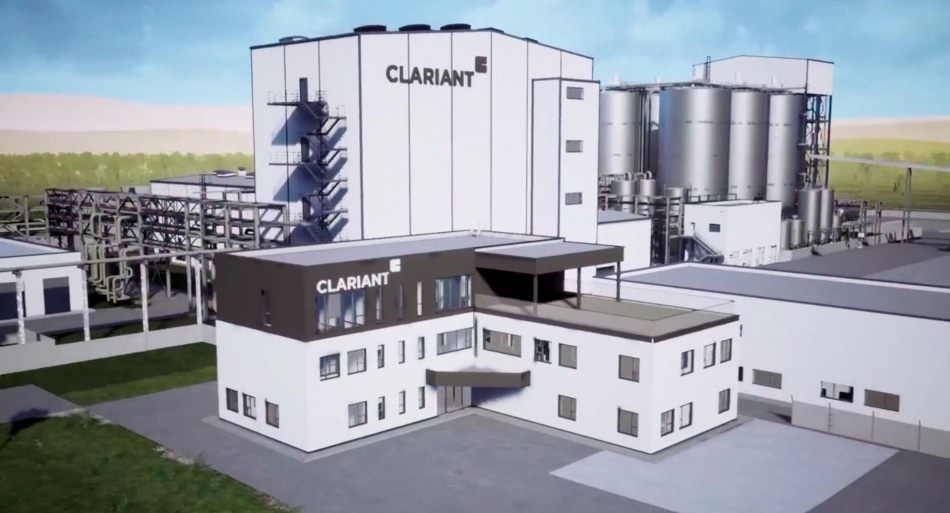Clariant, a focused and innovative specialty chemical company, provides farmers in Oltenia with the opportunity to transform straw into an additional source of income.

As part of the first official workshop organized by the company for farmers in the Oltenia region, the attendants had the opportunity to learn more about the sunliquid® plant being built by Clariant in Podari and how they can become part of the agricultural residues supply chain. The event was attended by Daniel Eugeniu Crunțeanu, State Secretary at the Ministry of Agriculture; Dragoș Gavriluță, Project Director at Clariant and Paul Popescu, Feedstock and Logistics Manager at Clariant.
“The plant in Podari will generate new jobs for a sustainable industry, as well as economic growth in the Oltenia region, especially creating new opportunities for local farmers in terms of additional sources of income”, stated Paul Popescu during the workshop.
The event was a first step in Clariant’s strategy to develop a long-term relationship in which approximately 250 local farmers become cereal straw suppliers and ensure a reliable supply chain. The attending farmers expressed their interest in the opportunity to generate additional income, by selling sustainable, formerly unused raw materials.
“After this workshop, I understand that Clariant’s project creates many opportunities for me as a farmer, from the valorization of straw residues to the involvement in related activities, such as baling, storage and transportation of straw bales”, said Liviu Mihail Antonescu, representative of S.C. Adela SRL, Slatina, one of the participants at the event.
Co-funded by the European Union and the Bio-Based Industries Joint Undertaking as part of the sunliquid and LIGNOFLAG project, the Clariant plant in Podari is designed to process approximately 250,000 tons cereal straw annually, which will be converted in 50,000 tons of cellulosic ethanol, using the company’s sunliquid technology.
Cellulosic ethanol is an advanced and truly sustainable biofuel which is almost carbon neutral, produced from agricultural residues such as wheat straw by using Clariant’s awarded technology, sunliquid. Its importance increases significantly in light of the sustainability regulations adopted by the European Union, which aim to support energy usage from renewable sources in all types of transportation. As a result, the cellulosic ethanol produced in Podari will have a significant economic impact at regional level.
6 benefits of the sunliquid plant for Oltenia region:
- Clariant will invest over EUR 100 million for the construction of the cellulosic ethanol plant. The project’s development and implementation in Romania is supported by the European Union, as part of EU’s funding for technological development from the funding programs FP7 and Horizon 2020 through the Bio-Based Industries Joint Undertaking BBI.
- The construction phase will create approx. 800 jobs.
- The plant will offer approx. 120 jobs for a sustainable industry and Clariant is currently recruiting local workforce.
- Once completed, the sunliquid plant will offer approx. 300 permanent jobs for side industries serving the facility, as well as for transporting and storing raw material.
- The sunliquid project will create a network of suppliers including local farmers, who will have the opportunity to transform agricultural residues such as cereal straw into an additional source of income.
- Romania will be placed on the map of advanced biofuels producers, showcasing innovative technology.